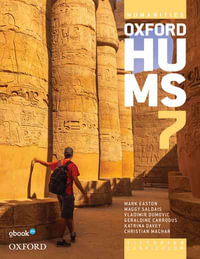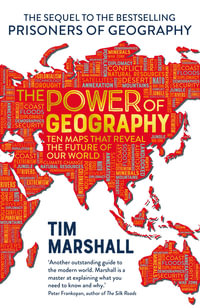
Time Maps
Collective Memory and the Social Shape of the Past
Hardcover | 15 May 2003 | Edition Number 1
At a Glance
Hardcover
$227.90
Aims to ship in 15 to 25 business days
ISBN: 9780226981529
ISBN-10: 0226981525
Series: Other Voice in Early Modern Europe Ser.
Published: 15th May 2003
Format: Hardcover
Language: English
Number of Pages: 187
Audience: General Adult
Publisher: The University of Chicago Press
Country of Publication: US
Edition Number: 1
Dimensions (cm): 23.41 x 15.94 x 1.95
Weight (kg): 0.42
Shipping
| Standard Shipping | Express Shipping | |
|---|---|---|
| Metro postcodes: | $9.99 | $14.95 |
| Regional postcodes: | $9.99 | $14.95 |
| Rural postcodes: | $9.99 | $14.95 |
How to return your order
At Booktopia, we offer hassle-free returns in accordance with our returns policy. If you wish to return an item, please get in touch with Booktopia Customer Care.
Additional postage charges may be applicable.
Defective items
If there is a problem with any of the items received for your order then the Booktopia Customer Care team is ready to assist you.
For more info please visit our Help Centre.
You Can Find This Book In
This product is categorised by
- Non-FictionHistoryGeneral & World History
- Non-FictionScienceAstronomy, Space & TimeTime & Chronology
- Non-FictionHistorySpecific Events & Topics in HistorySocial & Cultural History
- Non-FictionSociology & Anthropology
- Non-FictionHistoryHistory Theory & Methods
- Non-FictionReligion & Beliefs
- Non-FictionPhilosophyEpistemology & The Theory of Knowledge
- Non-FictionSociety & CultureSocial Groups
- Non-FictionEarth Sciences, Geography, Environment, PlanningGeography










![The Times Comprehensive Atlas of the World [16th Edition] - Times Atlases](https://www.booktopia.com.au/covers/200/9780008610111/4014/the-times-comprehensive-atlas-of-the-world-16th-edition-.jpg)












![Collins World Atlas : Paperback Edition [13th Edition] - Collins Maps](https://www.booktopia.com.au/covers/200/9780008320416/6208/collins-world-atlas.jpg)